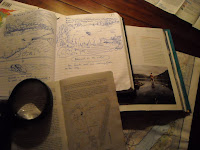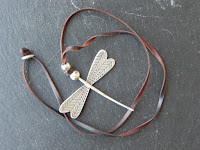I’ve just completed my newest novel The Bad Child, about twelve year old Dee, the misfit in her family, who decides not to speak at all.
Now I’m floating free! Now I’m breathing great sighs of relief and satisfaction. This novel has been a joy to write. To know it is truly finished I have to be pleased with it and very sure it’s as perfect as I can make it.
The writing life is
cyclic, offering different writing, emotional, inventive challenges at each
point in the cycle. Writing a novel is an organic process, born of a glimpse, a
thought, a new insight perhaps a year or two before.
This could be a line from
a book or a newspaper, an overheard
conversation, an image that fixes in the
mind, a linked memory from childhood. When I have embraced this core idea I cast
around and start to think, talk, scribble, and dream stories around this core idea in
both my waking and sleeping life until it becomes a solid reality in my mind.
At last, into this
mass of notes, ideas, research and story-telling, walks a distinctive character
with a mind of her own.Then another. And another. These characters begin
speaking to each other in different tones and accents, with different agendas
and priorities in their lives. At one point I wake up with their conversations
in my head.
And somehow out of
this inchoate mass of stuff emerges a
sense of a beginning, Eventually I manage to write a beginning that locks
Now and then, as I
write on, I have to slow down just to check that the story I’m writing today
has grown properly out of my yesterday’s prose, and that of the day before, and
the week and even the year before.
So, after working for
a year or so in this way I find that this self-willed creation begins to move
towards its close and I find myself
looking for a sense of an ending. Now is the time to slow down again, to make the best ending that for
this particular the story. If - as I do - you write close to real life, then ending
a novel is not easy. The ending has to fit the narrative logic bedded in this
story’s organic growth. As well as this, the ending has to imply a new logic, a
new organic possibility, a spurt of new life – life beyond the story.
With The Bad Child I changed the ending four times before I thought it worked.
Once the end has been
written, it’s time to put on my cap and gown and be my own editor – to check
every word, every line, every paragraph for correct meaning, syntax, and
spelling. I must check that time, place and characterisation serve the
consistency and the dynamism of the story. At this point I usually read the
prose out loud to check its that the sound flows.
Now the manuscript is
as perfect as I can make it.
In the end, like any
intelligent writer, I understand that my novel just cannot be perfect. The story has its own existence inside of me and
I am not sufficiently objective to catch every flaw.
And, like any intelligent
writer, I know that my story needs a skilled, outside editor and proof-reader (not a ‘friendly reader’) before it can
go out there into the cold world. This wizard of a person will inevitably pick
up snags and flaws that I, with the narrative events printed on my soul, will
have missed.
I discovered my own
eagle-eyed editor/proof-reader CliveJohnson two books ago. Since then I’ve realised that once the manuscript been
through his capable hands I can proceed with confidence to the further
challenges of designing the cover and going through the process onto
publication.
Then the book will be published and my characters walk out there in the world.
Oh joy! The time has come for me to start floating
free again in the outside world, catching gossamer words and images in my mind that
will eventually provide me with an organic core for an exciting new novel which
will keep me alive and kicking, thinking, imagining and writing for the next
eighteen months.
I am realising now that
the nature of my floating-free process ensures that each novel is distinct from
the others; a different species perhaps. This difference keeps me fascinated and-
I hope – my valued readers intrigued.
Below you can see samples of initial art Work in Progress for the cover of The Bad Child who will be
out there in the world walking alone in late August with a launch in early September.
Links
You can observe these differences on my Amazon collection. As you see, every novel is different. That's part of the fun
 Writing
at the Maison Bleue Contemporary
novel set in the Languedoc On Kindle: and In Paperback
Writing
at the Maison Bleue Contemporary
novel set in the Languedoc On Kindle: and In Paperback
The Pathfinder. On Kindle and In Paperback.
Historical novel set in the cross-piece of Celtic Society and
Roman occupation of Britain)
Clive Johnson Editor/Proofreader




























